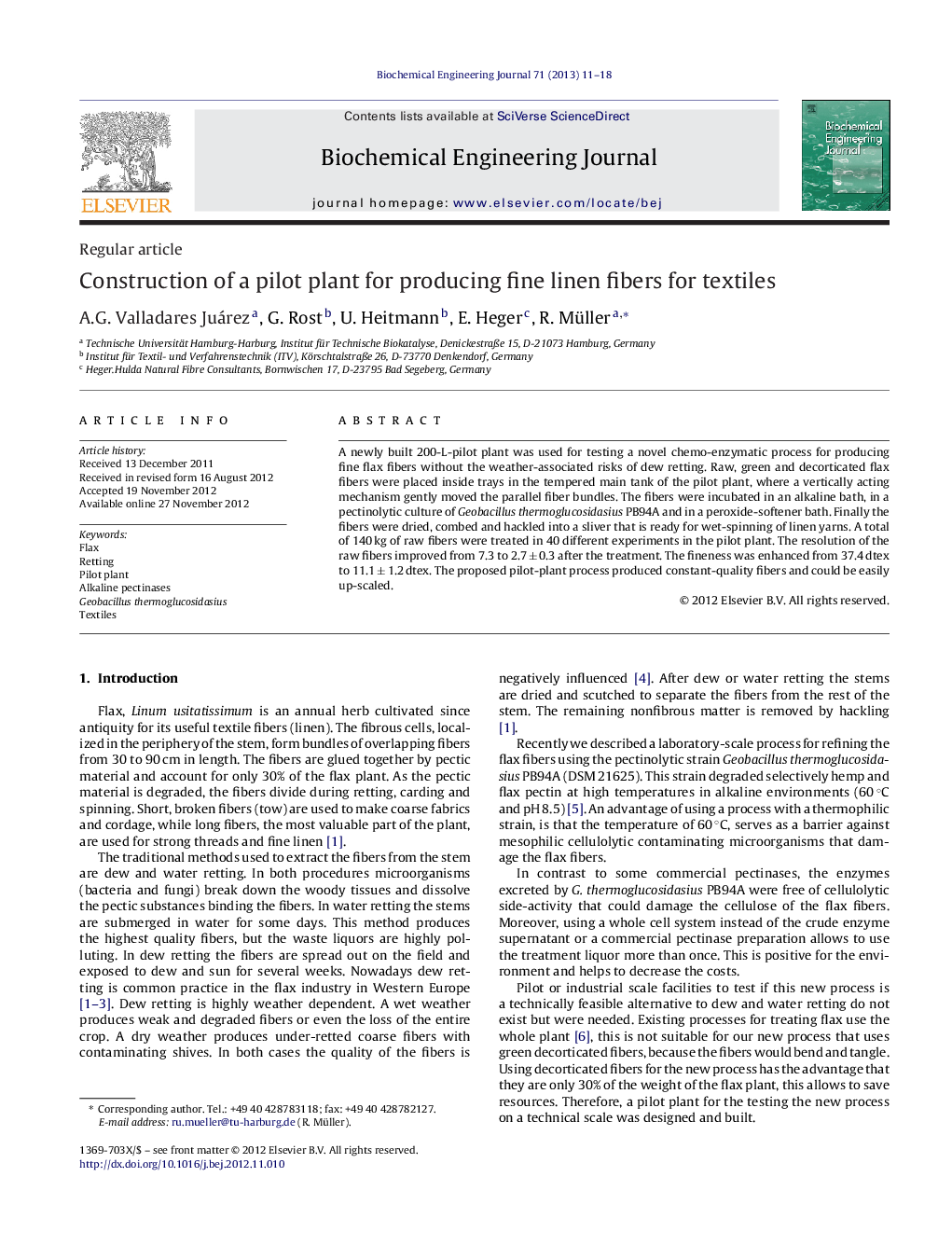| Article ID | Journal | Published Year | Pages | File Type |
|---|---|---|---|---|
| 3416 | Biochemical Engineering Journal | 2013 | 8 Pages |
A newly built 200-L-pilot plant was used for testing a novel chemo-enzymatic process for producing fine flax fibers without the weather-associated risks of dew retting. Raw, green and decorticated flax fibers were placed inside trays in the tempered main tank of the pilot plant, where a vertically acting mechanism gently moved the parallel fiber bundles. The fibers were incubated in an alkaline bath, in a pectinolytic culture of Geobacillus thermoglucosidasius PB94A and in a peroxide-softener bath. Finally the fibers were dried, combed and hackled into a sliver that is ready for wet-spinning of linen yarns. A total of 140 kg of raw fibers were treated in 40 different experiments in the pilot plant. The resolution of the raw fibers improved from 7.3 to 2.7 ± 0.3 after the treatment. The fineness was enhanced from 37.4 dtex to 11.1 ± 1.2 dtex. The proposed pilot-plant process produced constant-quality fibers and could be easily up-scaled.
Graphical abstractFigure optionsDownload full-size imageDownload as PowerPoint slideHighlights► A pilot plant for producing fine flax fibers with a new bioprocess was constructed. ► The plant was operated for one year and 140 kg of fine fibers were produced. ► The process is reliable, easy to scale-up and the equipment needed is simple. ► All process liquors could be reused several times producing high quality fibers. ► The new process avoids weather-related risks of traditional fiber production methods.
